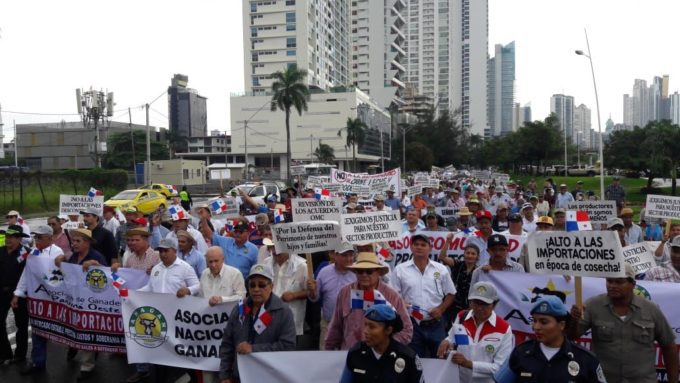State rapped over abandoned farmers

Panama’s Chamber of Commerce, Industries and Agriculture (Cciap) has condemned the State abandonment of the agricultural sector which has led to the current stream of street protests and constant complaints from producers, and calls for measures to prevent the imminent exacerbation of the problems.
“The situation lies in the lack of State policies that, by not knowing the strategic importance of agriculture in the life of the country, they left it unprotected, without a guiding compass and at the mercy of cyclical subsidies that eventually fostered the desertion of the field and the migration of youth to urban centers … “this has led us in a few years to e the disappearance of a great number of products that previously arrived fresh at the tables of our homes. “
The Chamber argues that “the special characteristics of our economy impose the need to harmonize the relationship between the different productive sectors, in this case, the agricultural and the importer, so that, instead of collision they converge in finding the solutions for the problems of universal interest “.
The farmworkers have gone so far as to throw away their products or march with horses and cows to the Presidency to raise awareness of the authorities because they feel overwhelmed by imports.
 The Cciap stressed that “it is completely inappropriate to authorize the importation of items coinciding with their harvest cycles in the country “.
The Cciap stressed that “it is completely inappropriate to authorize the importation of items coinciding with their harvest cycles in the country “.
There is “the imperative need to create a single National Food Authority of Food to ensure the safety of all foods, wherever they come from, ” said the Chamber’s statement.
The businessmen also reasoned that the Institute of Agricultural Marketing (IMA) “must resume the spirit for which it was created, the role of direct imports of agricultural products. and the definition of market prices, because it represents unfair competition for domestic producers.”
This institute must, above all, market Panamanian agricultural the production so that it can face the “challenges posed by trade agreements and the opening of international markets.
The Chamber also underlined the inefficiency of subsidies as an effective response to structural deficiencies and asks for empowerment in the management of family businesses in the production and marketing of exportable items, as well as financial facilities in appropriate conditions.
“These policies must integrate the family environment with the fundamental purpose of Affirming a high sense of permanence, as well as belonging and pride among those who work the land, “to stop the exodus to the cities.
In addition, they reject the price control established by the Varela government from 2014 because “it is contributing to killing the sector. It was an emergency measure that they decided to extend, further deteriorating the industry. “
The Cciap announced that it will carry out “extensive consultations in Country Agenda 2019-2024, to reflect specific recommendations that stimulate the agricultural sector, where national producers, agribusiness, trade and the State are engaged … and we will seek to provide practical and viable suggestions the report concludes.





